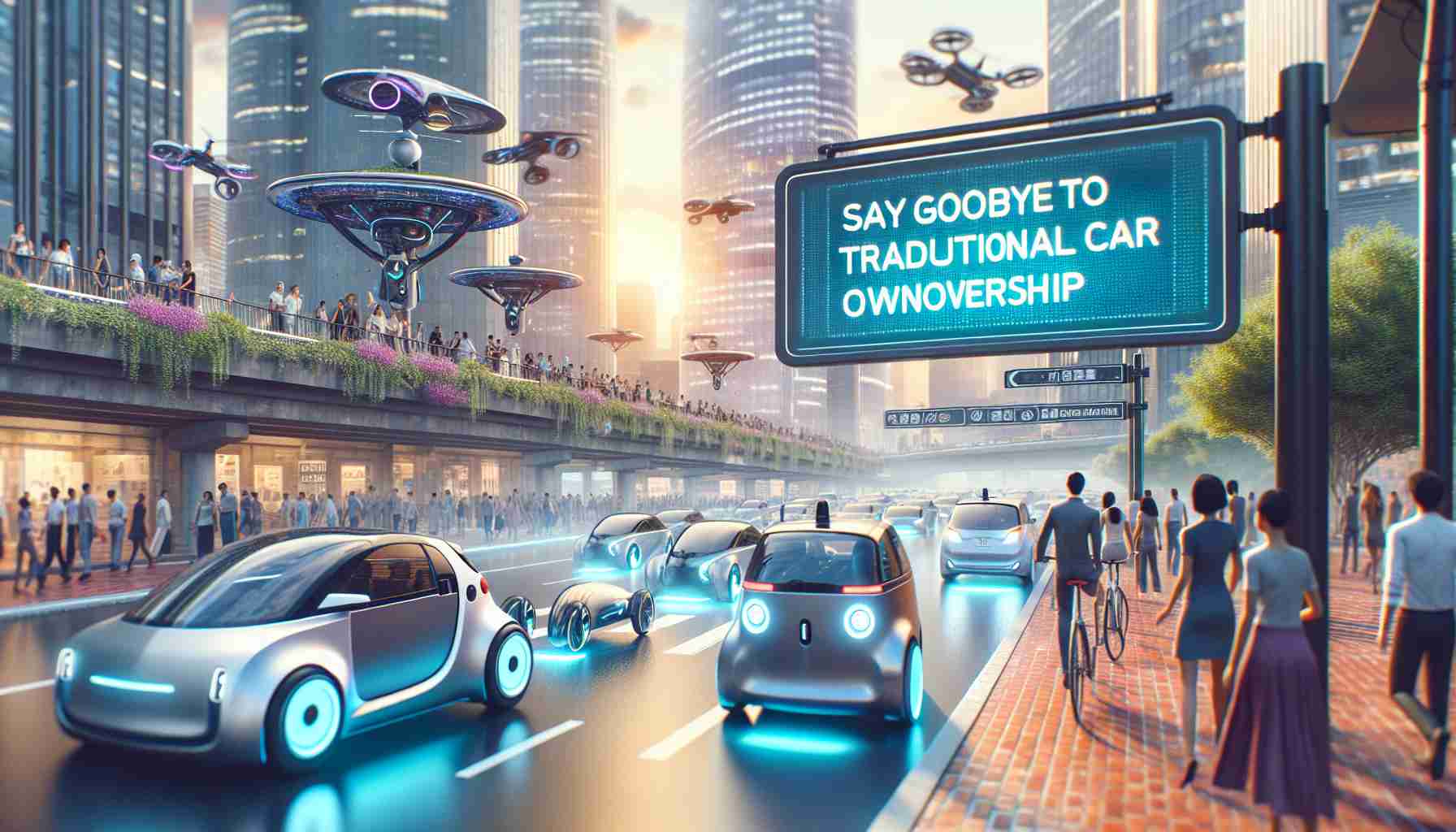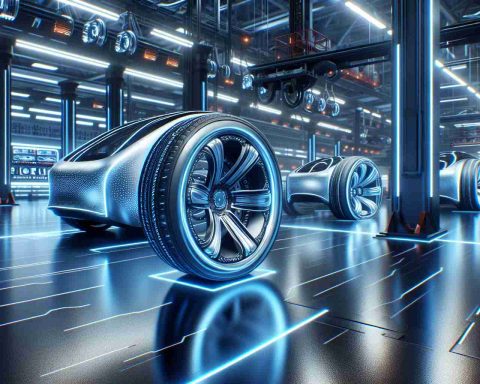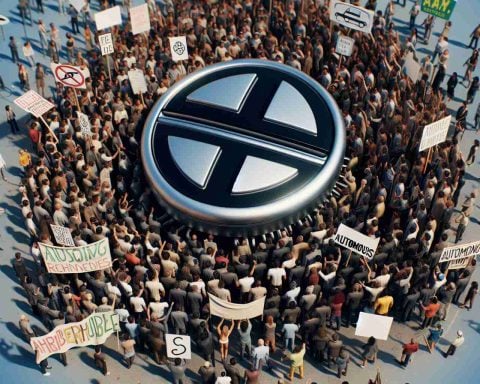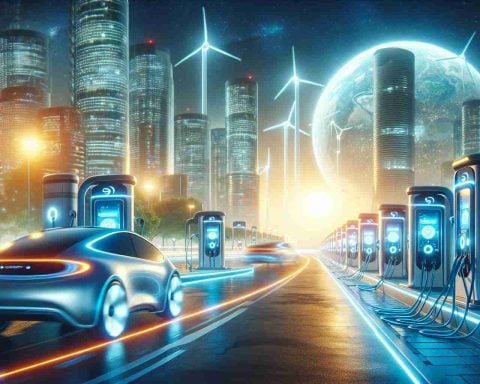A New Era in Transportation
Canoo is making waves in the electric vehicle (EV) sector by rethinking our relationship with cars. The company is challenging conventional ownership models with its innovative strategies and designs, paving the way for a sustainable future in urban mobility.
At the heart of Canoo’s groundbreaking approach lies a specialized skateboard platform. This design marvel allows for various vehicle types to be built on a single foundation, from eco-friendly delivery options to versatile lifestyle vehicles. Such flexibility not only streamlines production but also minimizes harmful manufacturing waste, making it easier to embrace environmentally friendly methods.
Transitioning further from traditional ownership, Canoo is implementing subscription-based services that allow users to choose vehicles tailored to their needs. This model promotes financial freedom and accessibility, allowing urban dwellers to select between adventurous SUVs and compact city cars without the long-term commitment that ownership entails.
Canoo’s evolution in vehicle manufacturing, supported by strategic partnerships, promises to reshape the automotive landscape. By lessening the dependence on lengthy auto loans, Canoo is democratizing access to electric technology while encouraging other industries to adopt flexible business models.
As urbanization continues to rise, Canoo’s commitment to reducing resource consumption and enhancing shared mobility reflects a vision where sustainability and accessibility drive the future. This visionary approach could redefine how we navigate our cities and interact with technology, making urban living more efficient and environmentally friendly.
The Broader Implications of Canoo’s Transportation Revolution
Canoo’s innovative approach to electric mobility has far-reaching ramifications for society and culture. By challenging the traditional models of car ownership, the company is aligning with a pressing global movement toward sustainability and resource conservation. As urban centers swell with populations, the demand for flexibility in transportation is critical. Canoo’s subscription model promotes a shift in mindset toward shared economies, which can potentially reduce congestion and pollution in overcrowded metropolitan areas.
The economic ramifications are equally significant. As Canoo enhances accessibility to electric vehicles, it may stimulate local economies through job creation in new sectors associated with EV manufacturing and maintenance. Furthermore, by democratizing access to advanced technologies, Canoo opens the stage for global competition, propelling a race toward greener innovations that may influence industries beyond transportation—such as logistics and real estate.
Moreover, the environmental effects of Canoo’s operational blueprint are profound. The focus on minimizing manufacturing waste aligns with broader environmental goals, contributing to the global reduction of carbon footprints. With the automotive sector being a heavy polluter, a transition to sustainable practices can lead to a significant decrease in greenhouse gas emissions over time.
On the horizon, the trend toward electric mobility and flexible ownership models suggests a profound transformation of urban infrastructure. This evolution could pave the way for integrated smart city solutions, where transportation, technology, and sustainability converge. As such, Canoo’s pioneering initiatives might not only redefine automotive paradigms but also shape how future generations will navigate their urban landscapes.
Revolutionizing Urban Mobility: How Canoo is Leading the Electric Vehicle Charge
A New Era in Transportation
Canoo is at the forefront of transforming the electric vehicle (EV) landscape by challenging traditional automotive ownership models. Its innovative strategies and designs not only aim to enhance urban mobility but also pave the way for a sustainable future.
Features of Canoo’s Unique Approach
One of the key innovations of Canoo is its specialized skateboard platform. This modular design enables the production of various vehicle types — from eco-friendly delivery vans to adaptable lifestyle cars — all built on a single, robust foundation. This versatility simplifies manufacturing, reduces environmental impact, and minimizes waste, aligning with the growing demand for sustainable practices in the automotive industry.
Subscription-Based Services: Flexibility Redefined
Canoo is also pioneering a subscription-based model that allows users to select vehicles tailored to their specific needs without the burden of long-term ownership. This approach emphasizes financial freedom, providing urban consumers the flexibility to choose from a range of vehicles, be it rugged SUVs for weekend adventures or compact cars for city commuting. Such services cater to a generation increasingly disinterested in traditional car ownership.
Strategic Partnerships and Market Impact
Canoo’s commitment to reshaping the automotive sector is underscored by its strategic partnerships. By collaborating with key industry players, Canoo is positioned to advance its manufacturing processes and expand its market reach. This collaborative spirit not only enhances the accessibility of electric vehicles but also encourages a wider spectrum of industries to explore alternative business models, including subscription and shared mobility services.
Trends in Urbanization and Mobility
As urbanization continues to climb, the demand for efficient, sustainable transportation options will grow. Canoo’s innovative solutions reflect a response to this trend, emphasizing resource conservation and enhanced shared mobility solutions. The vision it embodies could fundamentally alter how urban residents engage with transportation technology, promoting a lifestyle that is both environmentally responsible and convenient.
Pros and Cons of Canoo’s Model
Pros:
– Sustainability: Reduced manufacturing waste and a focus on eco-friendly vehicles.
– Flexibility: Subscription model allows consumers to change vehicles as needed.
– Accessibility: More affordable access to electric vehicles without long-term commitments.
Cons:
– Dependency on Technology: Subscription models may require robust technology infrastructure.
– Market Competition: As more companies adopt similar models, maintaining a competitive edge could be challenging.
Pricing and Specifications
While specific pricing details are subject to change, Canoo’s subscription services are designed to remain competitive with traditional ownership models. Their vehicles will feature state-of-the-art technology and sustainable materials, attracting environmentally-conscious consumers interested in cutting-edge automotive advancements.
Innovations and Future Predictions
Canoo’s forward-thinking approach reflects a broader trend in automotive innovation, emphasizing sustainability, customization, and flexibility. As cities continue to grow, the demand for adaptive transport solutions will likely increase. Firms that invest in similar technologies and business models may be well-positioned for success in the evolving market.
Conclusion
Canoo is leading the charge in redefining transportation through its innovative EV designs and flexible ownership options. As urban centers evolve, the shift toward more sustainable and efficient mobility solutions will shape the future, making Canoo a significant player in this electric revolution.
For more information on Canoo and its innovative approach to electric vehicles, visit Canoo’s official website.













